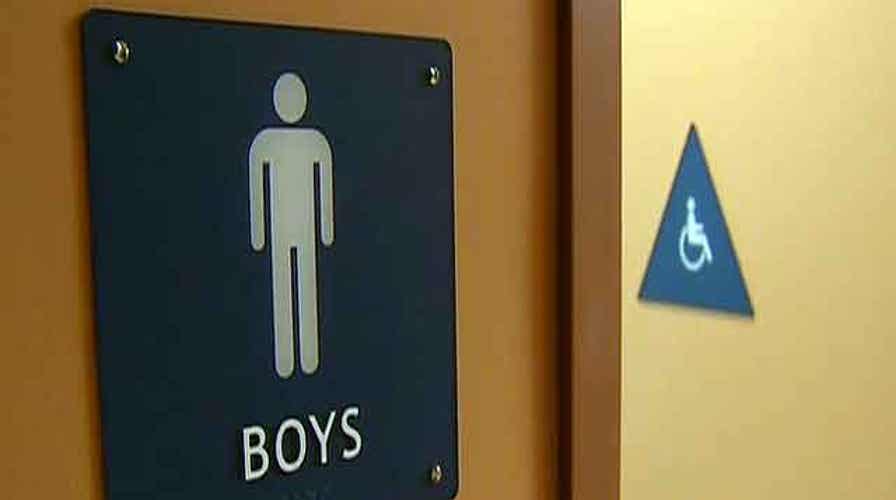Transgender bathroom bill allows kids to choose restroom
Adam Housley reports from San Francisco
Thursday, Donald Trump disagreed with North Carolina’s “bathroom bill,” which makes it illegal for transgender individuals to use bathrooms they feel correspond to their gender, rather than the one corresponding to their genetic gender.
Senator Ted Cruz immediately attacked Trump’s position, asking whether America has gone “stark raving nuts” to let men who consider themselves female to use bathrooms also being used by little girls.
The use of bathrooms by transgender individuals has come center stage in the U.S. presidential campaign for a reason: The bathroom debate is really a debate about the fundamental way we Americans will define any truth—whether as something deeply felt by an individual, or something scientifically demonstrable and verifiable.
Whether or not one believes gender reassignment therapy or surgery is wise, the cultural acceptance of biological/genetic females as male and vice-versa is tied to whether our species is willing to abandon genetics and biology as fact, in favor of considering a person’s desired self-image to be fact. But, even more, I believe that that fundamental question is tied, in the minds of millions of people, to whether any evidence or data should ever be considered more sacred than closely-held opinion.
If I maintain that my self-concept is that of a black person (and Rachel Donezal does so assert, for herself) and I tattoo myself black, head-to-foot, should our culture accept me as a black man? If I apply to law school as African-American, should I be given any preference that is allowed a minority applicant?
If I maintain that my entire being tells me I am not 54-years-old, but 75-years-old (in my tastes and friendships and energy level), should I be entitled to receive Medicare? Because attorneys I have asked have told me that case law related to transgender issues would make the argument that I ought to be eligible for Medicare carry weight.
If a 25-year-old man maintains that his maturity level and sense of self make him a 13-year-old, should he be allowed to be involved sexually with “other 13-year-olds?”
See, if we believe that transgender individuals must use the restrooms they choose, one could argue that many of our cultural institutions must flex away from fact. And one could argue that cultural chaos will result.
These questions, after all, extend to other realms than race and age. If I were a male member of ISIS, and jailed for terrorist acts, but then insisted while incarcerated that I were a 15-year-old, female American citizen who not only has changed my opinions, but am no longer in any way the person who was convicted of terrorist acts, should I then be released?
If the German people were to vote overwhelmingly, even unanimously, to assert that the Holocaust never happened, and then were to remove any reference to it or evidence of it from their culture, should we be required to not offend them by asserting that the Holocaust did, indeed, happen?
Some readers may think that my questions are preposterous, but they make this point: Many people unconsciously recoil at the potential slippery slope that transgenderism and the bathroom bill represent.
We aren’t simply debating who will use which bathrooms.
Because taken to its extreme, the slippery slope I have described really could have us embracing what is asserted, rather than what is evidenced scientifically, or is historically known to be fact.
And it would then be very hard, or impossible, to plan for our country’s survival or that of our species.

